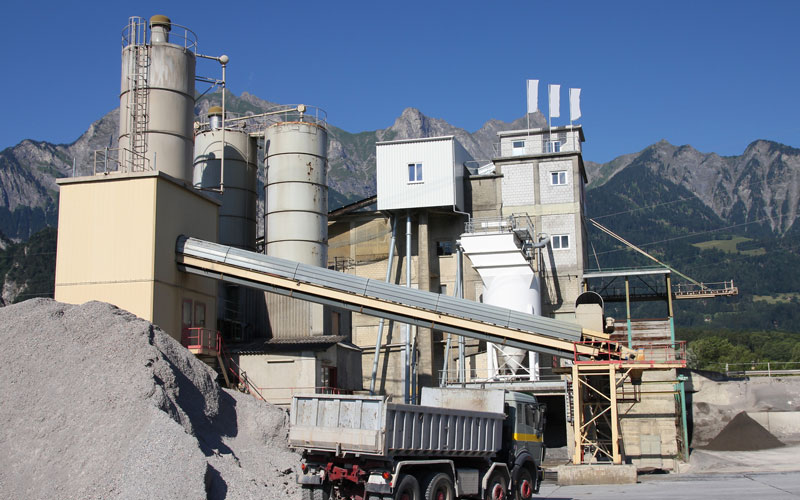Devki Group gobbles up lion’s share of cement sector
By Lewis Njoka, January 28, 2020Lewis Njoka @LewisNjoka
Kenya’s cement manufacturing sector will from today have a new market leader by production capacity following the commissioning of a new Sh3 billion cement factory in Salgaa to take place later in the day.
The inauguration of the 750,000 tonne annual capacity factory, the fourth one for Devki Group, follows the acquisition of two other cement factories by the company last year and makes it the largest cement producer in the country, a position previously held by Bamburi Cement.
Construction industry stakeholders will be watching keenly to see how the new market share arrangement affects their businesses.
Last year, the Narendra Raval-owned Devki Group added two cement manufacturing firms – Athi River Mining (ARM) and Cemtech Ltd – to its pre-existing ones making it a top cement producer in the country.
The local conglomerate, which also has interests in steel and roofing sheets manufacturing, now owns four cement manufacturing companies namely, National Cement (Simba Cement), ARM, Cemtech and the Salgaa Factory.
New factories
Additionally, Devki plans to build a Sh3 billion factory in Shangi, Kilifi, producing about one million tonnes of cement annually.
In total, Devki’s three factories, (National Cement, ARM, Salgaa) will have a combined production capacity of approximately 2.7 million tonnes annually which could jump to 3.9 million once Cemtech (1.2 million annual capacity) starts production.
Until now, Bamburi Cement was the country’s largest cement manufacturer producing about 2.1 million tonnes a year and controlling 33 per cent of the market share.
Cemtech is yet to start production, 10 years after it was established, but has plans to complete construction of a cement factory within 18 months producing about 24 million bags yearly.
Real estate players hope the new changes in the cement manufacturing sector will result in lower commodity prices saying cement constitutes about five to 10 per cent of the total cost of a building.
“We hope the changes will make cement more affordable than it is now. Currently, a 50kg bag retails at between Sh500 to Sh700.
The risk with monopolies is that one player can control prices for commodities in the entire sector,” says Mahiga Homes chief executive Peter Nyaga.
Architectural Association of Kenya vice president Wilson Mugambi, however, allayed fears that Devki could use its new-found power to raise prices in the country’s already competitive cement market saying they could not do it without the support of other players in the industry.
“They cannot control prices, they have to benchmark against colleagues in the industry. Competition is healthy. Hopefully, Devki will bring a good dynamic in the construction industry,” said Mugambi.
As of December 2018, Athi River Mining controlled 13 per cent market share while National Cement controlled eight per cent bringing the total market share Devki could inherit to of 21 per cent. This does not include Cemtech and Salgaa’s share.
According to the Kenya National Bureau of Statistics Bamburi Cement’s market share is followed by Mombasa Cement Ltd at 16 per cent (1.6 million tonnes), East African Portland Cement at 15 per cent (1.3 million tonnes) and Savannah Cement at 15per cent (1.53 million tonnes).
This, however, might have changed after Portland experienced financial challenges last year which necessitated layoffs and affected its production as well as market share.
New entrants into the market, such as the Salgaa factory, will also affect the market share sizes for older companies.
Raval, also known as Guru, acquired the cash-strapped Athi River Mining Cement (ARM), once the country’s second-largest cement maker after Bamburi Cement, from the Paunrana family for Sh5 billion after an intense legal battle.
Latest acquisitions
Prior to the acquisition, ARM, a Nairobi Securities Exchange-listed company, had been placed under receivership in August 2018 over a Sh19 billion debt and its shares suspended from trading.
In March last year, Devki’s Simba Cement, which trades under the National Cement brand name, acquired the West Pokot-based Cemtech Company Ltd at an undisclosed amount.
The deal, however, saw the market share of the merged entity (Simba and Cemtech) remain unchanged at eight per cent since Cemtech, formerly owned by Sanghi Group of India, had not begun operations 10 years after it was set up.
Last year’s acquisitions gives the Narendra Raval-owned Devki power to significantly influence the prices and availability of cement in the country making it a key player in national projects such as the government’s affordable housing plan and Standard Gauge Railway Phase 2B.
